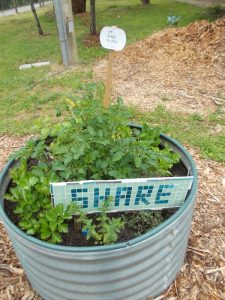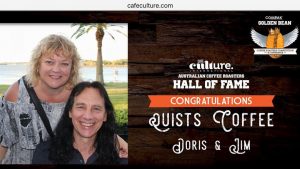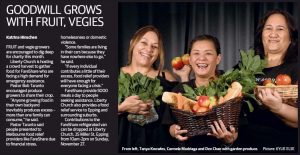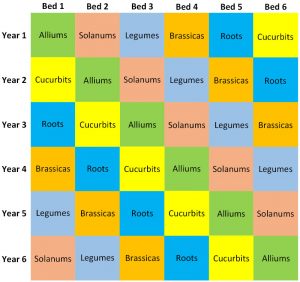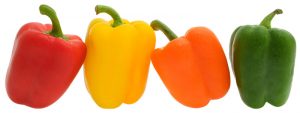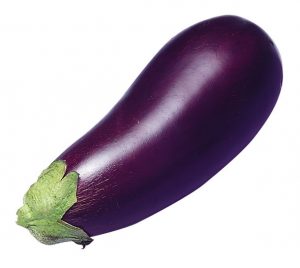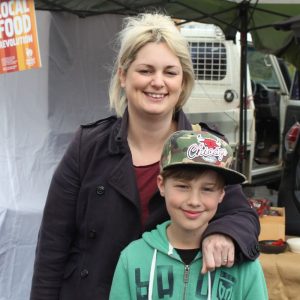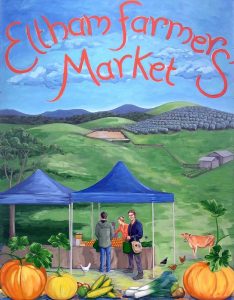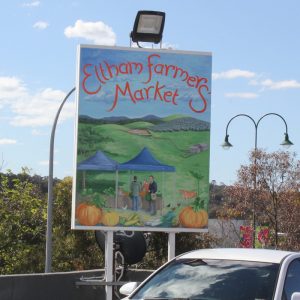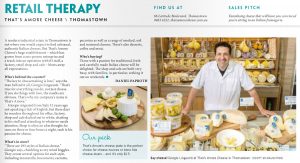Helen interviews Maria Ciavarella
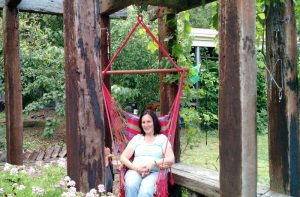 Helen has now completed her first interview, which was with Maria Ciavarella from Donvale. If you read it, you will see that it is a doozy. To give a flavour, here is the first paragraph: “Maria Ciavarella is well known around North East Melbourne for the abundance of informative and practical workshops that she runs, with topics ranging from sustainable home growing food practices to food preserving, jam and passata making. Meeting Maria for the first time, I am struck by her generosity – from the fresh, delicious scones that await my arrival to the huge quantity of mulberries she picks for me from the largest mulberry tree I’ve ever seen – whilst we talk in her garden.” Read the full interview.
Helen has now completed her first interview, which was with Maria Ciavarella from Donvale. If you read it, you will see that it is a doozy. To give a flavour, here is the first paragraph: “Maria Ciavarella is well known around North East Melbourne for the abundance of informative and practical workshops that she runs, with topics ranging from sustainable home growing food practices to food preserving, jam and passata making. Meeting Maria for the first time, I am struck by her generosity – from the fresh, delicious scones that await my arrival to the huge quantity of mulberries she picks for me from the largest mulberry tree I’ve ever seen – whilst we talk in her garden.” Read the full interview.
Editor’s note: now that you have read how complimentary(!) Helen is about the people she interviews, would you like to nominate someone for interview? Even yourself? All they need to be is a home grower with something interesting to say. Just email me with your suggested names.
Mac’s tip of the week
“It is called the Three Sisters. If space is limited, or even if not, the sisters get on well and help each other out (i.e. companion planting). Maize, climbing beans and squash (aka sweetcorn, beans and pumpkins) – a very old combination. Plant the sweetcorn first as structural support. Then, once growing, plant climbing beans around the base, maybe 4 per corn; the beans climb the corn while also adding nitrogen to the soil to help the corn. Once beans have grabbed hold, plant the pumpkins, which then shade the soil to retain moisture, gain nitrogen from the beans, and may also climb the older corn. Messy but very productive in a small space. Google for more info. Until next time, remember: dirty hand are good hands.”
Editor’s note: I first read about the Three Sisters in Jared Diamond’s Guns, Germs, and Steel, which is a fascinating book about why Eurasian civilizations, rather than anyone else, conquered the world. Part of his theory is that, whilst the Native Americans had cultivated sources of protein in both beans and sweetcorn, both the pulses (e.g. peas and lentils) and the edible grasses (e.g. wheat) in the Fertile Crescent were better sources of protein. So, the people in the Fertile Crescent could live closer together and could form more complex societies. So, the current composition and distribution of the world’s population depend on where lentils happen to have originated!
A new food swap in Brunswick
Hosted by SEEDs Communal Garden. The 2nd Saturday of every month, from 11am to midday. 331 Albert Street, Brunswick. Facebook: seedscommunalgarden. Email: Maxine at seedscommunalgarden@gmail.com.
That brings the grand total of food swaps in North East Melbourne to a whopping 28. See the website for the full list.
Do you want a free gum tree?
Vicki Jordan has a self-seeded gum tree in a pot to give away. It is currently 2 metres high but, over time, will grow big. Pick up from Lower Plenty. If interested, email Vicki.
A couple of weeks ago, we asked for help to maintain the planter boxes in Diamond Creek. Thanks to Julie for responding – Pam Jenkins says that she has already made a noticeable difference.
Home Harvest FEASTival news
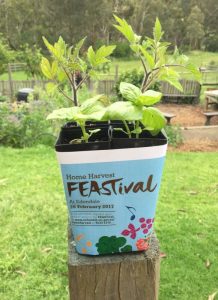 The Home Harvest FEASTival is a celebration of local food and the summer harvest featuring a shared harvest meal to be held at Edendale on Sunday, 26th February. Your donation of homegrown produce = your ticket to attend. They have a Facebook group
The Home Harvest FEASTival is a celebration of local food and the summer harvest featuring a shared harvest meal to be held at Edendale on Sunday, 26th February. Your donation of homegrown produce = your ticket to attend. They have a Facebook group
People who have registered receive the occasional newsletter. The last newsletter included two broad bean recipes by Duang Tengtrirat (aka the best cook in Nillumbik): broad bean soup and broad beans linguine with ricotta.
Another of the newsletter’s articles concerned Beales Road Farm and The Veggie Empire. Beales Road Farm started three years ago in response to the social isolation being experienced by the leaseholder of the land in Greensborough where it is based. The leaseholder, Hayden, has autism and needed to meet new community members to help him feel safe and connected to his community. Gardening was something that he was interested in. Eighteen months after it began, a small community gardening team known as ‘The Veggie Empire‘ joined the original gardeners and have helped develop the food system into a vibrant and viable local food system. The team have been involved in one way or another since the first Home Harvest Feast in 2012. This year they are growing leeks, tomato, eggplant and zucchini and are looking forward to celebrating local food within an inclusive community activity.
Victorian Pleasurable Food Education Package
Pleasurable Food Education is what the Stephanie Alexander Kitchen Garden Foundation (SAKGF) call their food education program. The Victorian Government recently announced that they were subsidising the program, to reduce the cost to a school to $550. healthAbility has just announced a further, Nillumbik-only subsidy, which reduces the cost to a school to $275. Click here to read about the program or click here to read about the latest offer.
Congratulations to Alan, Greta and Robin
The 2016 Banyule and Darebin Sustainability Awards included three newsletter readers: Alan Leenaerts (Montmorency Sugar Glider Project), Greta Gillies (a Local Hero) and Robin Gale-Baker (also a Local Hero).
Congratulations to Carol
Newsletter reader Carol Woolcock’s garden featured in this month’s Permablitz re-visited.
Spare Harvest website
Spare Harvest is a new website (and app) which is designed to enable local communities to help connect, share, swap and sell all things related to gardening and growing food.
It is similar in concept to the RipeNearMe website.
And, finally, as reported by Local Harvest: the Tinder of food waste, ShareWaste.
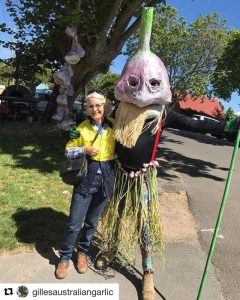 Garlic farmer
Garlic farmer
Courtesy of Lucinda Clutterbuck, see picture right.
New events
Summer pruning
What: Led by Chris England. Using the demonstration fruit trees in the orchard of the Burnley Gardens, you will learn how to summer prune fruit trees and also how create espaliers. Summer pruning gives you maximum fruit in a minimum space. Then, under Chris’ watchful eye, have a go yourself.
When: Saturday, 3rd December, 10am-1pm.
Where: Burnley College, Richmond.
Cost: $75.
Enquiries/Bookings: Friends of Burnley Gardens by phone (9035 6815) or email.
Further information: LFC calendar entry.
Absolutely famished community day
What: Explore the food cultures and gardening traditions of migrants and refugees from Africa, Asia and the Middle East living in inner city Melbourne, sample a selection of culturally diverse foods, and talk to cooks and gardeners from the local community. Rare and unusual food plants for summer growing will be on sale including sweet potato, kang kong, ginger and turmeric. All plants have been grown through a collaboration between participants at the Carlton Neighbourhood Learning Centre and staff and students at the Burnley Campus of the University of Melbourne. There will be free consultations on growing these food crops in Melbourne’s climate.
When: Saturday, 3rd December, midday-3pm.
Where: LAB-14, Carlton.
Cost: free.
Bookings: just turn up.
Further information: LFC calendar entry.
Chocolate discovery class
What: Anyone aged 12 & above can join them for a one-hour chocolate discovery class, indulging in a range of chocolate tastings, crafting your very own chocolate bar, and delighting in six handmade filled truffles, while each is passionately explained by their European Chocolatier.
When: Saturday, 10th December, 11.30am-12.30pm.
Where: Yarra Valley Chocolaterie, Yarra Glen.
Cost: $40.
Enquiries: Yarra Valley Chocolaterie by phone (9730 2777) or email.
Bookings: Yarra Valley Chocolaterie website.
Further information: LFC calendar entry.
Gingerbread houses
What: For children aged 4-11. Each child will be provided with a uniform and will receive a certificate of workshop completion. Bookings (by phone or email) essential.
When: Saturday, 24th December and Sunday, 25th December, both 1-5pm.
Where: Third Place Cafe, Wollert.
Cost: $50.
Enquiries/Bookings: Sibelleus Chefittles Express by phone (0406 653430) or email.
Further information: LFC calendar entry.
Summary of upcoming events
Over the next week
- Getting ready for the summer harvest: Wednesday, 30th November, 7-9pm.
- Urban forage and feast: a celebratory community dinner: Friday, 2nd December, 7-9.30pm.
- Summer pruning: Saturday, 3rd December, 10am-1pm.
- Chocolate treats workshop with Santa: Saturday, 3rd December, 10.30-11.30am.
- Absolutely famished community day: Saturday, 3rd December, midday-3pm.
- Heritage Fruit Society: orchard maintenance workshop: Sunday, 4th December, 9am-midday.
- Permablitz 194 (Eltham North): Sunday, 4th December, 10am-4pm.
- Building veggie beds from pallets: Sunday, 4th December, 12.30-4pm.
- Raw living whole foods with Valentina Rise: Sunday, 4th December, 2-5pm.
- How to make sense of food labels: Monday, 5th December, 9.30-11am.
- Christmas cookie decorating (Coburg): Tuesday, 6th December, 2-3pm.
Over the next month
- Christmas cake decorating: Thursday, 8th December, 10.30-11.30am.
- Homemade Christmas: Thursday, 8th December, 10.30am-midday.
- Christmas cookie decorating (Fawkner): Friday, 9th December, 2-3pm.
- Become a junior chocolatier: Saturday, 10th December, 9-9.45am.
- Chocolate discovery class: Saturday, 10th December, 11.30am-12.30pm.
- Sourdough workshop: Saturday, 10th December, 10am-1pm.
- Preserving basics: making preserves for Christmas: Saturday, 10th December, 10am-1pm.
- Italian Christmas cake decorating: Tuesday, 13th December, 7-8pm.
- Gingerbread houses: Saturday, 24th December, 1-5pm.
- Gingerbread houses: Sunday, 25th December, 1-5pm.
Click here for the complete calendar of upcoming events. Click here for help in how to view the calendar selectively (e.g. search for events in a given suburb).

